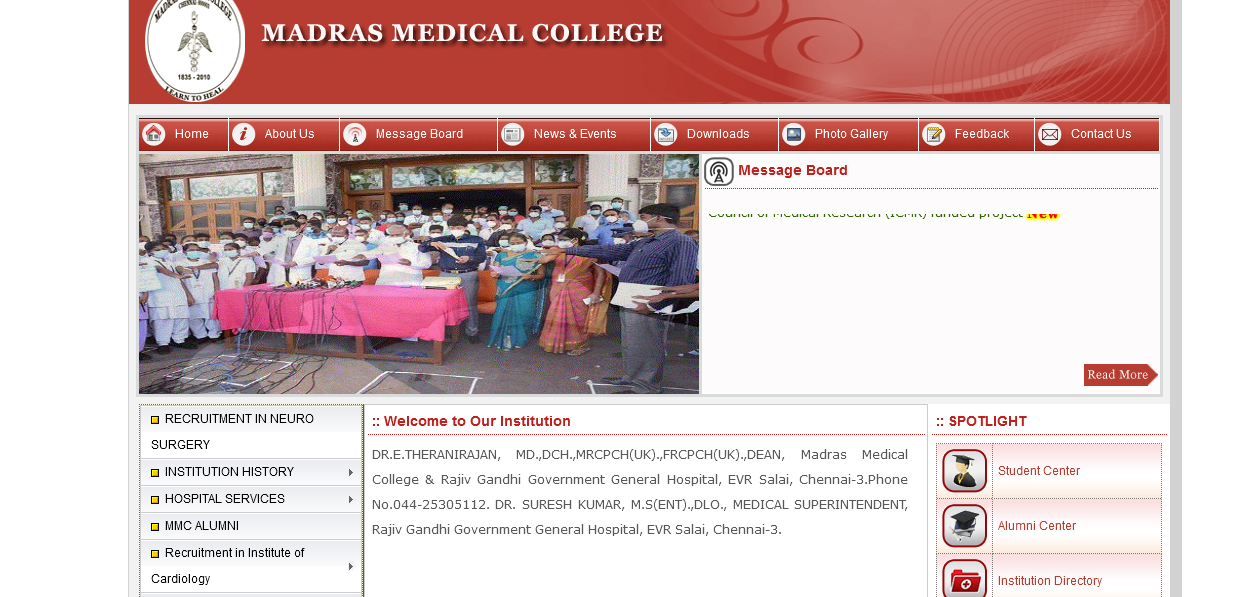Madras Medical College, Chennai

Recruitment of Staff Nurse for Indian Council of Medical Research (ICMR) funded project titled “DEVELOPMENT AND VALIDATION OF PROGNOSTIC MODELS FOR PATIENTS WTH TRAUMATIC BRAIN INJURY A COMPARISON OF MODERN MACHINE LEARNING METHODS” under Contractual basis for a period of one year.
- Read more about Madras Medical College, Chennai
- Log in to post comments
- 74 views


